
Gamebirds have been domesticated for food production and for ornamental aviculture for centuries, yet they remain a mostly underappreciated group of birds. This might be because they can be seen along roadsides, in open farmlands, urban fringes and even within towns and gardens. The gamebirds have rep resentatives on all continents except Antarctica and, together with the ducks and geese, form the basal group among the Neoaves. The Galliformes comprise nine major groups of terrestrial game birds: megapodes, cracids, guineafowls, grouse, turkeys, pheasants, partridges (including francolins and spurfowls), and Old World and New World quails.
Studies combining the genetics and anatomy of living species and fossils suggested that pheasants, partridges, quails, spurfowls and francolins are not natural evolutionary groups, but rather mosaics of evolutionarily unrelated species. Even the bestknown gamebird and the wild ancestor of the domestic chicken, the Junglefowl Gallus gallus, was moved on the gamebird evolution ary tree from being with the pheasants to a branch that includes a mix of ‘fran colins’ and ‘partridges’.
This story is from the March - April 2020 edition of African Birdlife.
Start your 7-day Magzter GOLD free trial to access thousands of curated premium stories, and 9,000+ magazines and newspapers.
Already a subscriber ? Sign In
This story is from the March - April 2020 edition of African Birdlife.
Start your 7-day Magzter GOLD free trial to access thousands of curated premium stories, and 9,000+ magazines and newspapers.
Already a subscriber? Sign In

EXPLORING NEW HORIZONS
Keith Barnes, co-author of the new Field Guide to Birds of Greater Southern Africa, chats about the long-neglected birding regions just north of the Kunene and Zambezi, getting back to watching birds and the vulture that changed his life.

footloose IN FYNBOS
The Walker Bay Diversity Trail is a leisurely hike with a multitude of flowers, feathers and flavours along the way.
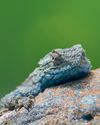
Living forwards
How photographing birds helps me face adversity
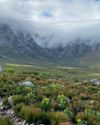
CAPE crusade
The Cape Bird Club/City of Cape Town Birding Big Year Challenge
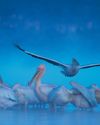
water & WINGS
WATER IS LIFE. As wildlife photographer Greg du Toit knows better than most.
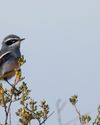
winter wanderer
as summer becomes a memory in the south, the skies are a little quieter as the migrants have returned to the warming north. But one bird endemic to the southern African region takes its own little winter journey.
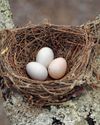
when perfect isn't enough
Egg signatures and forgeries in the cuckoo-drongo arms race

Southern SIGHTINGS
The late summer period naturally started quietening down after the midsummer excitement, but there were still some classy rarities on offer for birders all over the subregion. As always, none of the records included here have been adjudicated by any of the subregion's Rarities Committees.

flood impact on wetland birds
One of the features of a warming planet is increasingly erratic rainfall; years of drought followed by devastating floods. Fortunately, many waterbirds are pre-adapted to cope with such extremes, especially in southern Africa where they have evolved to exploit episodic rainfall events in semi-arid and arid regions. But how do waterbirds respond to floods in areas where rainfall - and access to water - is more predictable? Peter Ryan explores the consequences of recent floods on the birds of the Western Cape's Olifants River valley.
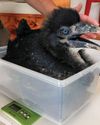
a star is born
It’s every producer’s dream to plan a wildlife television series and pick the right characters before filming.